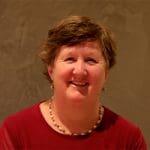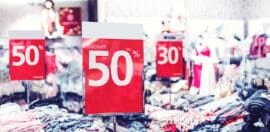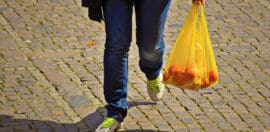‘A universal call to action’

1 November 2021 at 4:22 pm
Ahead of the launch of a new SDG guide, Sophie Arnold, executive manager of United Nations Association of Australia (Victorian Division), reflects on the increasingly important role the sustainable development goals are playing.
The incredible global impact of the coronavirus pandemic has made everyone aware of the urgent need for action to ensure people’s basic needs are met; that the planet is made secure from the effects of climate change and that our future world is healthier, safer, fairer and more prosperous.
The UN argues that the sustainable development goals (SDGs) provide a global roadmap out of the pandemic and that everyone working together to implement them by 2030 will mean we address the underlying factors which exacerbated the worldwide crisis: poverty; food insecurity; fragmented health systems; educational and gender inequality; and climate change.
The COVID-19 pandemic has, unsurprisingly, had a significant impact on progress made towards achieving the goals. UN agencies acknowledge that the 2030 agenda will now not be achieved without a significant ramping up of SDG-related investment, leadership and action across the world.
The UN Global Compact says there is an “urgent need for the business community to raise its ambition and use its resources, scale, and speed, to meaningfully contribute to delivering the SDGs”.
Opening the UN and Australia Sustainable Partnerships Forum in April, UN deputy secretary general Amina J Mohammed said governments, civil society, business and academia must all take part in the “multiplicity of partnerships that are necessary now so that we get the depth and the breadth of the ambition of the SDGs”.
Interviewed for a new SDGs guide being released next month (see details below), OzHarvest founder Ronni Kahn AO said the goals are a “universal call to action”.
“We need enormous change and must harness knowledge, expertise, finance and technology at all levels of society. And we can achieve change much faster when we work together,” she said.
With the Monash Sustainable Development Institute’s Transforming Australia SDG Progress Report – 2020 Update showing that Australia is performing well on health and education but failing to reduce emissions, waste and environmental degradation and address cost of living pressures and economic inequality, there is a lot to be done.
But there is growing evidence that Australian businesses, local and state governments, schools, universities, trusts and foundations, and community sector organisations are increasingly integrating their SDGs into their strategic planning, impact measurement and supply chain management.
The framework of 17 interconnected goals covering the social, environmental and economic spectrum is providing guidance for organisations seeking to move beyond sustainability strategies and practices traditionally focused only on environmental outcomes.
Organisations are using the SDGs as a common language and framework to establish new collaborative partnerships with suppliers – driven by recognition that they will not be able to achieve objectives such as reduced carbon emissions and modern slavery risks without suppliers also contributing to these efforts.
Speaking at the Sustainable Partnerships Forum, Australian Super ESG director Andrew Gray said the SDGs are increasingly being seen by investors like super funds as a “great framework or even a great business plan for a long-term sustainable economy” which is essential to deliver the best results for their members. He said, in this context, the risk of not achieving the SDGs can now be seen as an investment risk.
With more and more customers, leaders, employees, investors and other stakeholders committed to ethical and purposeful businesses and initiatives, the SDGs, and especially the targets and indicators, have an increasingly important role to play in reporting impact.
Annual reporting of organisational and sustainability performance is increasingly including measurement against the SDGs, with many organisations choosing a subset of goals most suited to their priorities. Others are using the SDGs to move to more holistic thinking and actions, seeing the benefit of the goals as a checklist when a key strategic decision needs to be made or a new program designed.
Applying the SDGs to planning, reporting or operations also provides an opportunity to clearly show your organisational commitment to environmental, social and governance (ESG) principles, and can help to identify business opportunities and strategic risks.
And when it comes to the SDGs, it is not just big organisations taking the lead.
Charlton Neighbourhood House – a small, volunteer organisation servicing largely farming communities in Victoria’s Mallee region – decided to craft its second ever strategic plan around the SDGs after recognising that future community leaders were learning about the goals at senior school and university. President Kay Cossar said: “For us to be relevant and support our next generation of leaders and decision makers, we needed to be part of the change”.
Organisations wanting to start their SDGs journey don’t have to do this alone, with increasing resources and guidance available. As shown in a new SDGs handbook about to be released, there is a willingness to share information and advice by those who have already integrated the goals.
Launch details
The United Nations Association of Australia (Victoria) and Spark Strategy have written a new paper – The UN Sustainable Development Goals = social, environmental and business value: An Australian handbook – with insights, advice and practical strategies. This will be launched with an online expert panel discussion at 11.30am on 9 November.
Panellists:
- Anna Yanatchkova, acting head of diversity, inclusion and belonging at Sydney Opera House.
- Mindy Leow, head of community building at B Lab Australia & New Zealand.
- Matthew Brennan, head of sustainability at Transurban.
- Catherine Brown, CEO of Lord Mayor’s Charitable Foundation.
- Kiam Yoong, senior manager of environmental sustainability at Zoos Victoria.
The event is free, but registrations are essential. Click here to register







